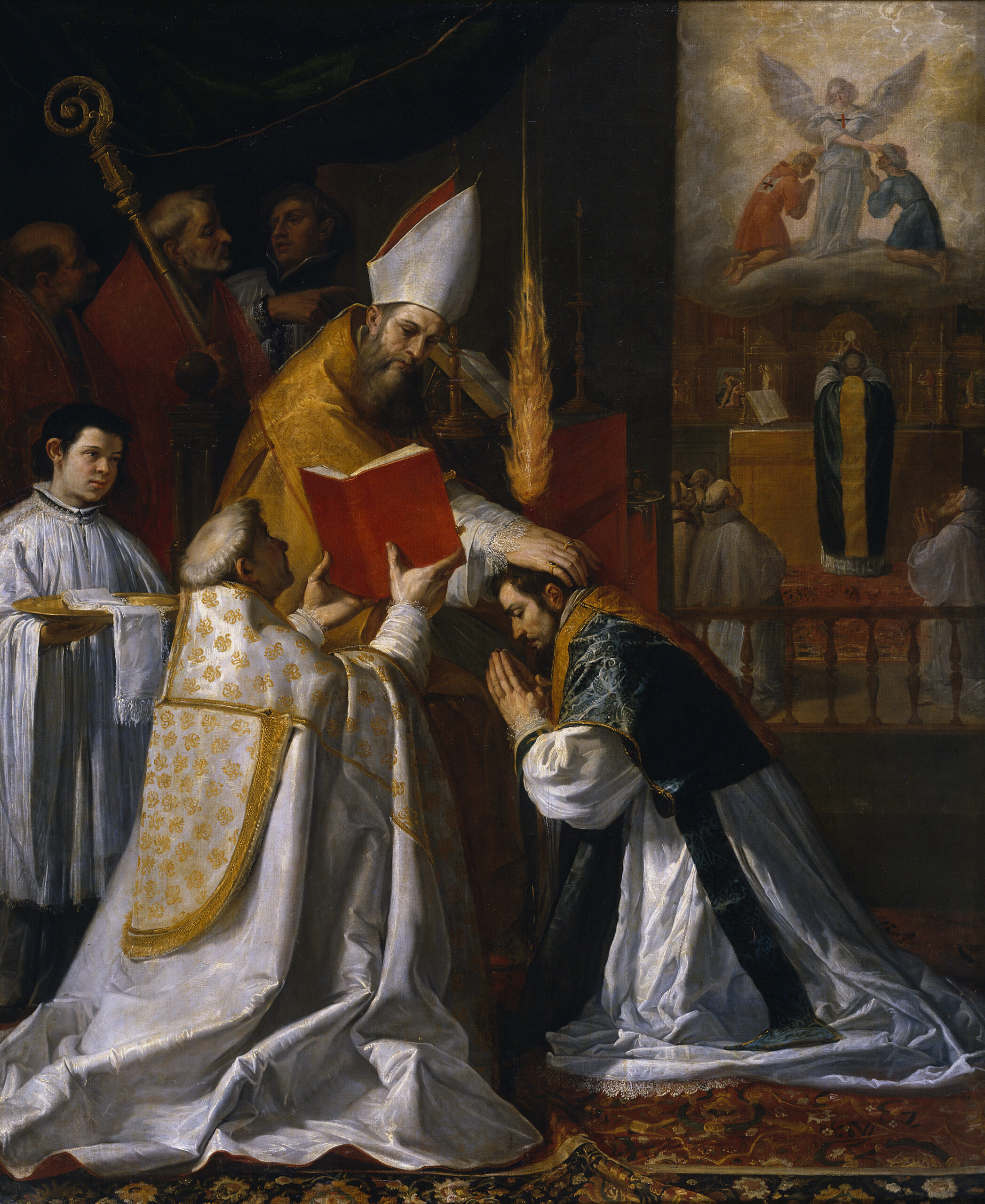Catholic facts
Differences and Similarities between Bishop and Presbyter
Within the rich tapestry of Christian ministry, the roles of Bishop and Presbyter, often referred to as Priest, are integral to the spiritual life of the church. Both titles represent ordained positions, yet they carry distinct meanings and responsibilities. In this comprehensive exploration, we will unveil the differences and similarities between a Bishop and a Presbyter, shedding light on their roles, functions, and significance within the Christian community.
Bishop: The Guardian of Dioceses
Definition: A Bishop is a senior clergy member within various Christian denominations, often holding a position of high authority. The term “Bishop” is derived from the Greek word “episkopos,” meaning overseer. Bishops are recognized for their responsibility to oversee and shepherd a specific diocese or region.
Ordination: The process of becoming a Bishop involves a special consecration that includes the laying on of hands by other Bishops. This ordination sets them apart for their distinctive role within the church.
Responsibilities:
- Spiritual Oversight: Bishops are spiritual overseers of their diocese. They provide guidance, leadership, and pastoral care to the clergy and congregations under their authority.
- Church Governance: Bishops play a crucial role in the governance of the church. They possess authority in matters of doctrine, discipline, and church administration.
- Ordination and Confirmation: Bishops have the authority to ordain new clergy and administer the sacrament of confirmation, marking the initiation of individuals into the church.
- Episcopal Vestments: Bishops are often distinguished by their distinct vestments, including the mitre (a pointed headdress), a crosier (a shepherd’s staff), and other regal attire.
Presbyter (Priest): The Minister of the Local Church
Definition: The term “Presbyter” is often used interchangeably with “Priest.” Presbyters, or Priests, are clergy members who serve within local church congregations, providing spiritual leadership and pastoral care. The title “Presbyter” is derived from the Greek word “presbyteros,” which means elder.
Ordination: To become a Presbyter, an individual usually undergoes ordination as a clergy member. This process may vary in requirements depending on the denomination, but it marks their commitment to the ministry.
Responsibilities:
- Pastoral Care: Presbyters are primarily responsible for providing spiritual guidance and pastoral care to their congregations. This includes preaching, teaching, counseling, and tending to the spiritual needs of their parishioners.
- Solemnization of Sacraments: Many Presbyters have the authority to perform sacraments such as weddings, baptisms, and funerals. They often officiate at significant life events within their congregation.
- Community Engagement: Presbyters engage with their local community, participating in outreach, social justice initiatives, and community service, thereby strengthening the connection between the church and the world.
- Sermons and Worship Services: A core aspect of the Presbyter’s role is delivering sermons and leading worship services. They interpret and teach scripture, providing spiritual nourishment to their congregation.
Differences Between a Bishop and a Presbyter
- Scope of Authority: The most significant difference lies in the level of authority and scope of responsibility. Bishops oversee a diocese, which may encompass multiple local congregations, while Presbyters serve within a single congregation.
- Ordination Process: Bishops undergo a specific episcopal ordination, setting them apart as overseers. Presbyters, though also ordained clergy, may not have the same level of authority or responsibility.
- Spiritual Oversight: Bishops provide spiritual oversight to multiple churches and congregations within their diocese, while Presbyters primarily serve a single local congregation.
- Vestments: Bishops often wear distinctive episcopal vestments, such as the mitre and crosier, while Presbyters typically wear clerical attire such as a clerical collar or robes.
Similarities Between a Bishop and a Presbyter
- Ordination: Both Bishops and Presbyters undergo ordination as part of their commitment to the ministry.
- Spiritual Leadership: Both play significant roles in providing spiritual leadership, guidance, and pastoral care to their respective communities.
- Sacramental Functions: Both may perform sacramental functions, such as baptisms, weddings, and funerals, within the scope of their authority.
- Preaching and Teaching: Both deliver sermons, teach scripture, and lead worship services as part of their roles in the church.
Conclusion
While both Bishops and Presbyters hold essential roles in the Christian ministry, their differences lie primarily in the level of authority, scope of responsibility, and the specific ordination process they undergo. Bishops are overseers of dioceses and wield significant authority, overseeing multiple congregations. Presbyters, on the other hand, serve as local clergy within a single congregation. Both, however, are united in their commitment to spiritual leadership, pastoral care, and the service of God and their communities, making them integral parts of the Christian faith. The titles “Bishop” and “Presbyter” may signify distinct roles, but they share a common purpose—the enrichment of the spiritual lives of believers and the advancement of the Christian faith.
About Author
























